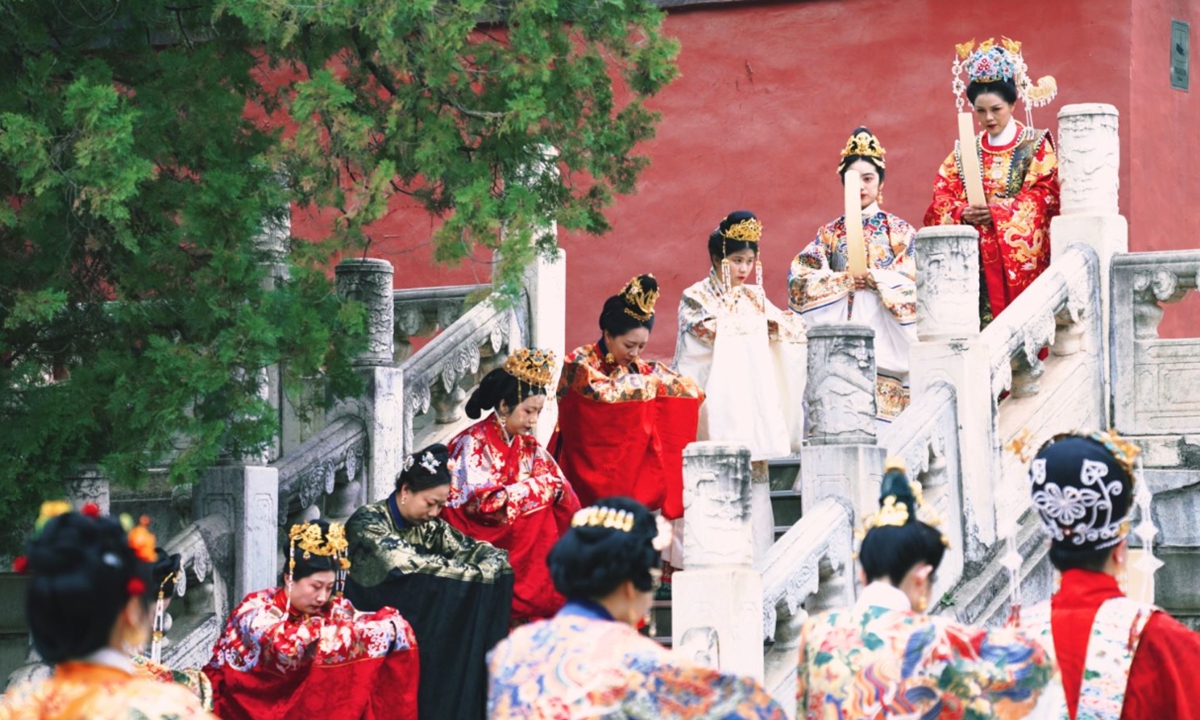ARTS / CULTURE & LEISURE
Trends: Cross-cultural exchanges and mutual learning help overcome differences

Scene of the Ming Culture Festival in Beijing's Changping district Photo: Courtesy of the Ming Tombs
Cross-cultural exchanges and mutual learning have the most profound impact and can overcome differences and win recognition, as international communication is a systematic effort that involves both official channels and non-governmental communication, according to Tu Lingbo, a research fellow with the Communication University of China.
To better promote China's traditional culture to the international community, it is essential to first understand foreigners and pay attention to their curiosity while avoiding falling into cultural stereotypes, he said. China's modern culture and contemporary internet culture created by young generations are also worth promoting, Tu noted.
People's Daily Online
The popularity of short videos transcends age, gender and region, covering production, life, business and culture. On the one hand, short video platforms need high-quality content, and now there is an increasing amount of such content, which further proves its value. On the other hand, high-quality content has strong vitality, and the key is to innovate and create new ideas rather than becoming a "repeater" of traditional culture.
Beijing Youth Daily
Recently an online sensational "fortune teller" surnames Liu has been arrested for spreading superstition. It is necessary to promptly expose the disguise of those who use online platforms to promote superstition and cut off the dissemination of feudal superstitious content.
Using the internet to promote feudal superstitious ideology is, in itself, a huge paradox.
Those "fortune tellers" who hitchhike on technology and engage in feudal superstition that harm the rights and interests of others should have their sincerity and credibility questioned from the very start.
The Paper


